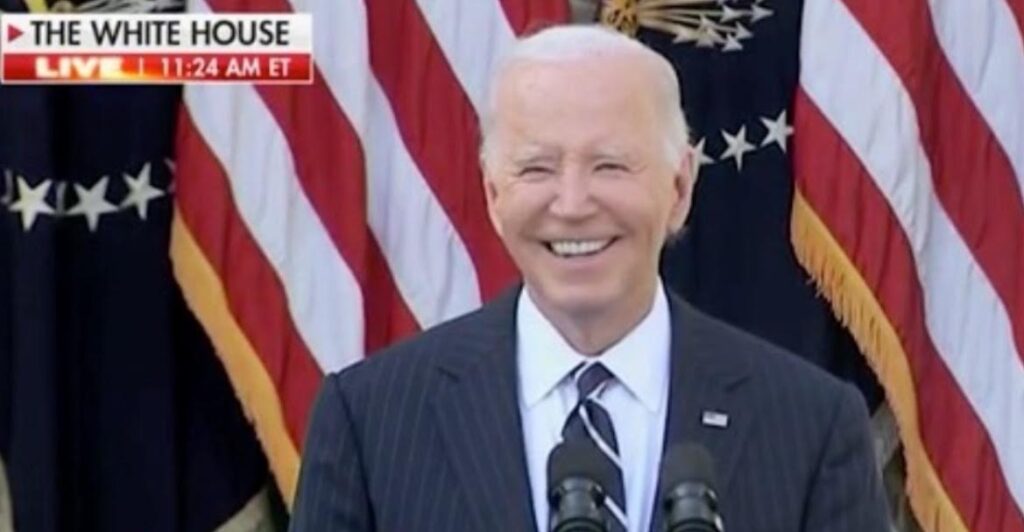In the aftermath of the 2024 election, President Joe Biden delivered a notable address to the nation, reflecting on former President Donald Trump’s victory. His demeanor during the speech suggested a surprising level of happiness, particularly given the difficult circumstances surrounding the election. Biden’s relationship with his vice president, Kamala Harris, had notably deteriorated during the campaign, culminating in her securing a significant number of delegates that displaced him from the ballot—an outcome largely attributed to the influence of former President Barack Obama. This political strife was exacerbated by Biden’s perceived sabotage of Harris’ candidacy, notably through derogatory remarks aimed at Trump supporters right before the election, which effectively showcased a rift within the Democratic party.
Behind the scenes, the tensions between the Biden administration and Harris became increasingly public. Reports indicated that the Bidens held a deep-seated disdain for Harris, which was illustrated on Election Day itself. Jill Biden’s choice to wear a MAGA red pantsuit while voting stood out as a significant symbolic gesture, one that conveyed a lack of support for the Democratic party’s efforts in this election cycle. Furthermore, Joe Biden’s absence from the Kamala Harris watch party raised eyebrows and led to speculation about the underlying dynamics within the party as well as Biden’s personal feelings about his colleague’s performance.
In his address, Biden urged the nation to embrace a sense of unity, stressing that love for one’s country should not be conditional upon electoral victories. His admonition, “You can’t love your country only when you win,” resonated as an appeal to the American populace to foster camaraderie and understanding, regardless of political affiliations. The president’s rallying call aimed to reduce the prevailing political tensions and encourage Americans to see each other as compatriots rather than adversaries.
Biden’s comments were received with mixed reactions; some found hope in his message of unity, while others believed it to be a mere platitude following a substantial Republican victory. However, the tone of Biden’s speech suggested an attempt to pivot the narrative away from divisiveness and toward reconciliation. In a political landscape characterized by polarization, the president’s emphasis on common identity could be interpreted as a strategic move to bridge the widening gap between factions within the electorate.
Visual representations of Biden during the address enhanced the narrative of his unexpected elation. As various media outlets captured his expressions and remarks, the question lingered: could Biden genuinely find joy in Trump’s resurgence? On social media, users noted his demeanor and the surrounding context—starkly contrasting the somber reality for many Democrats following the election results. This portrayal added a layer of complexity to the public perception of Biden, especially in light of the challenges his administration faced with a revitalized Republican party.
As Americans processed the implications of the election results, Biden’s speech served not only as a reflection on Trump’s victory but also as a statement of intent for his presidency moving forward. It called for introspection among citizens and a reassessment of their relationships with one another as members of a shared nation. In navigating the political fallout of the election, Biden’s remarks pointed to the necessity of healing, suggesting that unity could lead to a more stable and productive political future, regardless of party lines.

